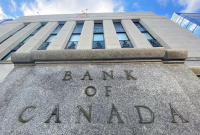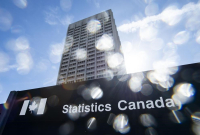Support strong Canadian climate journalism for 2025
The election spotlight could shift today to Canada's pandemic-ravaged economy and debt-laden federal finances as Statistics Canada reveals its consumer price index for July.
The annual pace of inflation was 3.1 per cent in June, down from 3.6 per cent in May when the consumer price index posted its largest yearly increase in a decade.
The inflation rate has exceeded the Bank of Canada's target of two per cent since April and some economists expect it to creep as high as 3.9 per cent in the fall.
Bank of Canada governor Tiff Macklem has argued that price increases are temporary — the result of supply chain disruptions during COVID-19 lockdowns — and that allowing inflation to remain temporarily high will help the economy rebound from the pandemic-induced recession.
He has said Canadians can be confident that the central bank will keep the cost of living under control as the economy reopens, even as it maintains its record-low benchmark interest rate of 0.25 per cent.
However, some economists believe inflation could spike higher and last longer than Macklem suggests.
And persistently high inflation would put pressure on the bank to increase interest rates, which would make it exponentially more costly for the federal government to carry its staggering debt load.
The 2021 budget forecast that the debt will double to $1.4 trillion by 2026.
Conservatives have blamed the Liberal government for "out-of-control" inflation and accused the Bank of Canada of being in cahoots to enable the Liberals to finance their massive pandemic relief spending.
Conservative MP Pierre Poilievre refers to it as an "inflation tax that transfers money from the have-nots to the have-yachts," pushing up the price of necessities like food and fuel and sending housing prices into the stratosphere, beyond the reach of working-class Canadians.
This report by The Canadian Press was first published Aug. 18, 2021.





Comments